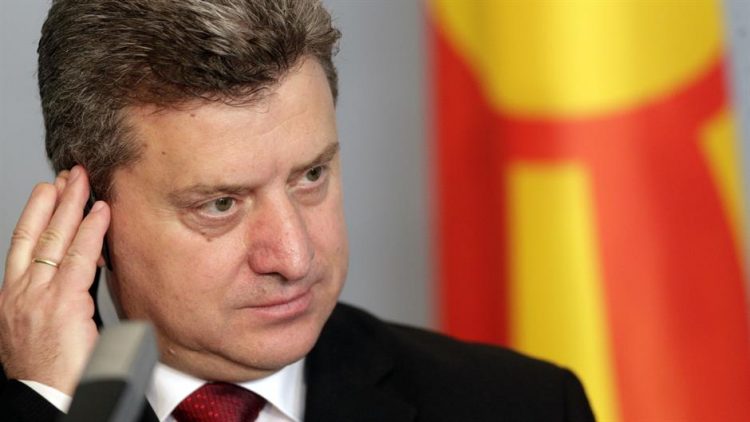
The President of Macedonia refused on Wednesday to sign a deal Prime Minister made with his Greek counterpart on a new name for the former Yugoslav republic, risking another crisis at home and delaying the end of the 17-year-long dispute.
Gjorge Ivanov said he would never sign a deal Zoran Zaev and Alexis Tsipras, Macedonian and Greek prime ministers respectively, agreed on Tuesday giving the country new name – the Republic of North Macedonia.
“My position is final, and I will not yield to any pressure, blackmail or threats. I will not support or sign such a damaging agreement,” Ivanov told a news conference on Wednesday, few hours following his walk-out from the meeting with Zaev after only two minutes.
The two have had many disputes, most recently about the law on the use of the Albanian language which Ivanov vetoed, but after the parliament passed it again, the bill came into force.
“This agreement opens more problems than it solves… Everything sacred in Macedonia has been buried,” he said, adding that the eventual NATO membership and accession negotiations with the European Union could not serve as an excuse to sign such a “bad agreement”.
Skopje and Athens reached the deal on Tuesday and Brussels congratulated the prime ministers, signalling Skopje could open negotiation on June 28, while the NATO invitation could come in July.
It was not immediately clear what effect Ivanov’s rejection would have on the deal. He has the backing of the largest opposition party, nationalist VMRO-DPMNE, whose leadership said on Tuesday they would not support the agreement in the parliament in which Zaev’s coalition has a majority.
The Athens – Skopje agreement envisages a transitional period for the changes to the internal Macedonian documents which is also necessary for the country to get the NATO invitation and start the EU accession negotiations.
Under the deal, Macedonians will have to go on a referendum on the name issue which is scheduled for September or October. The yes vote will enable the government to change the constitution, while Athens will have to ratify the accord in the Parliament.




